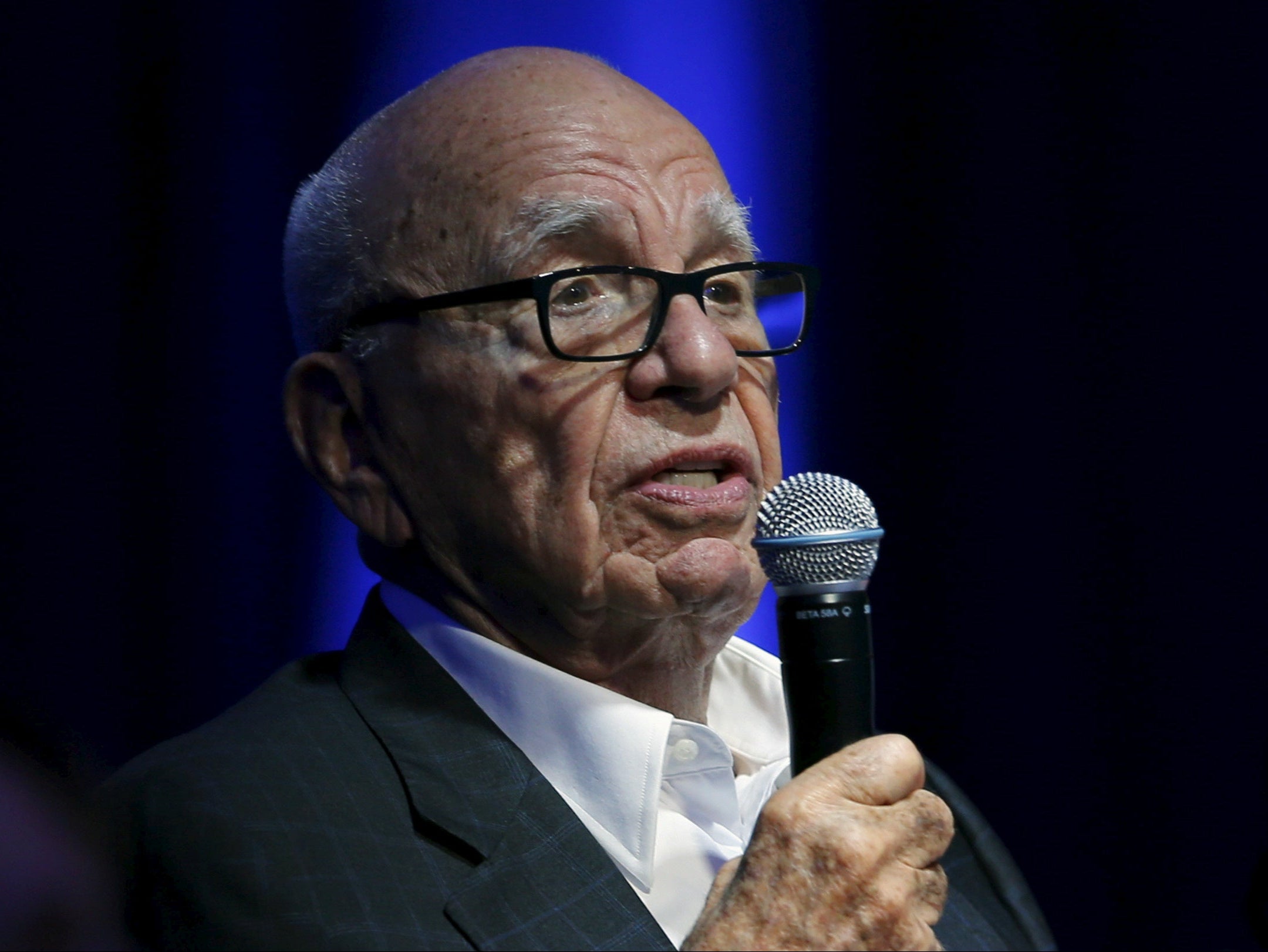Murdoch media empire a ’cancer on democracy’, former Australian prime minister says
Kevin Rudd’s petition urging Royal Commission into ‘abuse’ of media monopoly garners 150,000 signatures

Rupert Murdoch’s monopoly on Australia’s media is a “cancer on democracy” that serves to “chill free speech and undermine public debate”, a former prime minister has said.
A petition launched on Friday by Kevin Rudd, urging Canberra to launch a Royal Commission “to ensure the strength and diversity” of the nation’s news media, has since garnered more than 150,000 signatures.
“Our democracy depends on diverse sources of reliable, accurate and independent news,” the petition states. “But media ownership is becoming more concentrated alongside new business models that encourage deliberately polarising and politically manipulated news.”
Singling out the NewsCorp conglomerate founded by Mr Murdoch, Mr Rudd accused the firm of using its grip on Australia’s media to routinely “attack opponents in business and politics by blending editorial opinion with news reporting”, alleging that, as a result, those “who hold contrary views have felt intimidated into silence”.
In a video posted to Twitter, Mr Rudd – an Australian Labour Party politician who served as premier from 2007 to 2010 – accused Mr Murdoch of seeking “to maximise his political power in the country in defence of his ideological interests like climate change denial”.
“You see, the truth is Murdoch has become a cancer – an arrogant cancer – on our democracy,” Mr Rudd said, adding that over the past decade Mr Murdoch had “viciously” campaigned against his own party and in support of the centre-right Liberal-National coalition.
“There’s no such thing as a level playing field any more,” said the 63-year-old.
However, current Labour leader Anthony Albanese sought to distance himself from the campaign on Sunday.
Mr Albanese said that while his predecessor was entitled to push for a Royal Commission as a “private citizen”, the move was not backed by the party itself.
It appears unlikely that the government – led by the Liberal Party’s Scott Morrison – would pay heed to the petition, with no requirement in law for it to do so regardless of how many signatures it attracts.
But it comes after the 89-year-old media mogul’s son, James Murdoch, revealed he had quit his position on the board of News Corp due to his discomfort over “disagreements over certain editorial content … and certain other strategic decisions”, in particular those relating to the company’s coverage of Donald Trump’s presidency.
“I reached the conclusion that you can venerate a contest of ideas, if you will, and we all do, and that’s important. But it shouldn’t be in a way that hides agendas," Mr Murdoch told the New York Times.
“A contest of ideas shouldn’t be used to legitimise disinformation. And I think it’s often taken advantage of. And I think at great news organisations, the mission really should be to introduce fact to disperse doubt — not to sow doubt, to obscure fact, if you will.”
The media kingpin’s grip on democracies the world over has been subject to frenzied debate for decades.
In the UK, Mr Murdoch’s relationship with former prime ministers such as Tony Blair and David Cameron has generated column inches measurable by the mile, with his impact on the result of the Brexit vote and the general elections seized upon as evidence both by those who claim his influence over the populace is waning, and those who believe it is as strong as ever.
And in Australia, the Sydney Morning Herald drew attention to Mr Rudd’s past proximity to Chris Mitchell, the editor-in-chief of News Corp title The Australian, during the aftermath of his 2007 electoral victory.
“Actually, if the whole [Royal Commission] shebang does get off the ground, the most scintillating witness about the co-dependency of politicians and the ‘Murdoch mafia’ could only be KRudd himself,” two of the paper’s columnists wrote on Sunday.
Mr Mitchell’s 2016 memoir, Making Headlines, detailed a close relationship with the former premier.
The journalist claimed to have advised Mr Rudd not to trust his deputy Julia Gillard, while in another instance he alleged that Mr Rudd had allowed him to listen in to a phone conversation with George Bush, during which the then-US president reportedly asked: “What’s the G20?”
NewsCorp have been approached for comment.
Join our commenting forum
Join thought-provoking conversations, follow other Independent readers and see their replies
Comments


Bookmark popover
Removed from bookmarks